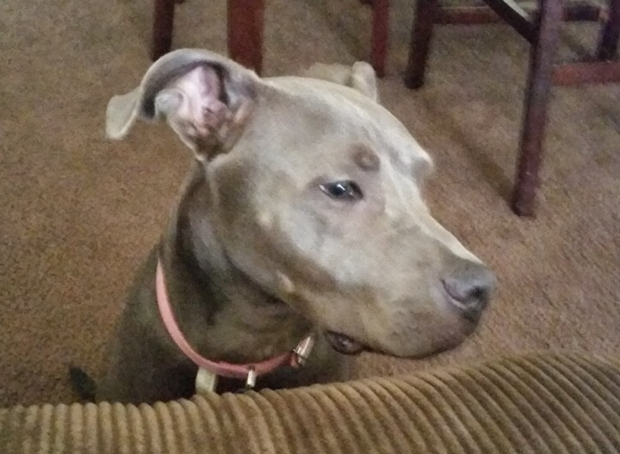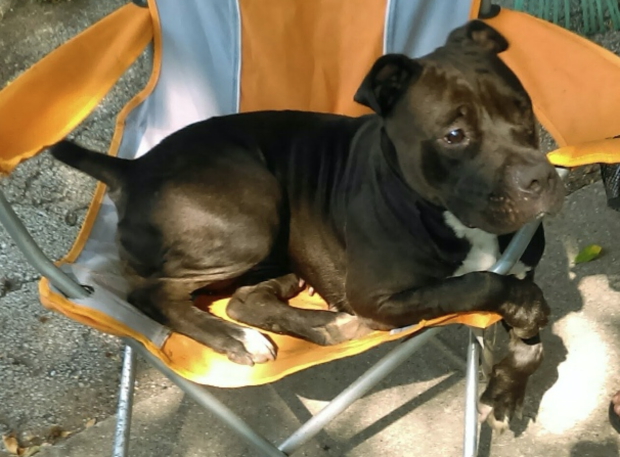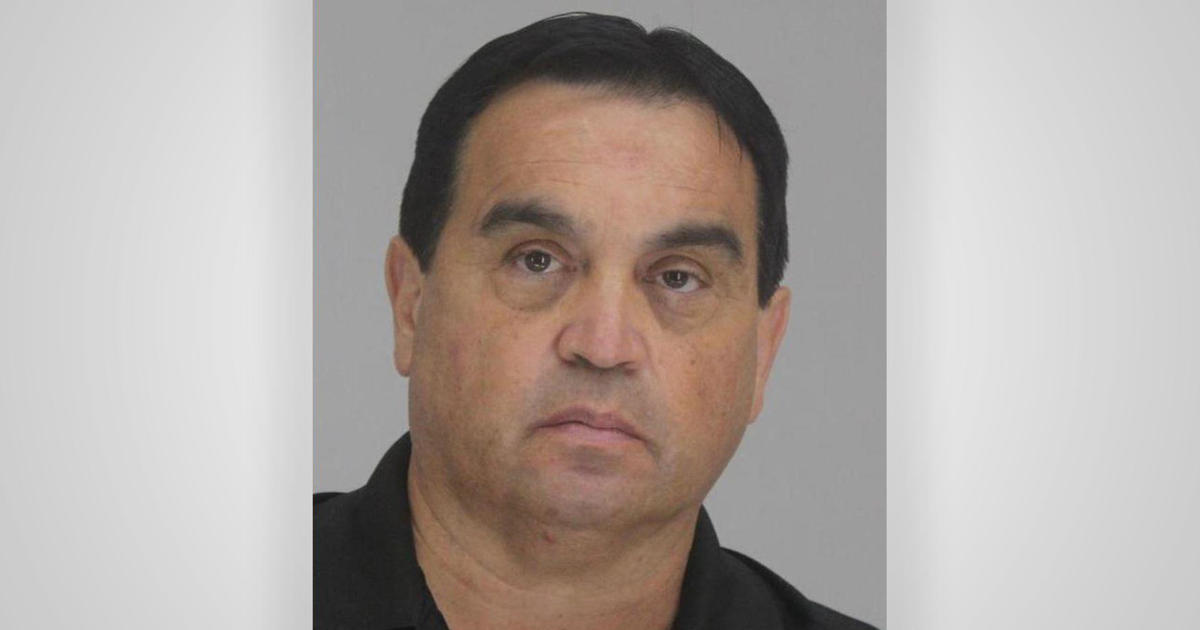Some Dallas Dogs On 'Dangerous List' After Neighbor Disputes; Attorney Claims 'The Dog Is The Victim'
Locations Of Dangerous Dogs Kept Secret In Most North Texas Cities
DALLAS (CBSDFW.COM) - Some dog owners in Dallas claim Dallas Animal Services is wading into disputes among neighbors, with pets turning into pawns.
The city of Dallas posts a list of dogs online it deems dangerous to the public, better known as the Dangerous Dog Registry.
But several of the animals that appear on the registry never hurt anyone, according to their owners, who claim their cases boiled down to "he said, she said" arguments.
To Nyesha Anglin, Chloe was a faithful companion.
But Anglin said her pet unexpectedly found herself in the midst of a tiff with a neighbor.
"It's unfair," Anglin said. "She was a loving dog. She never bit anyone."
Anglin claimed she and her neighbor were involved in a personal dispute, which led the neighbor to report Chloe to Dallas Animal Services.
The agency outlines the allegations in a letter it sent to Anglin earlier this year.
Chloe ran up to the neighbor and her mother, barking and off the leash, according to the document. The letter went on to describe how the woman needed to use a suitcase to protect herself from the dog. No dog bite was reported.
Even though the incident occurred in August, the neighbor waited six months to report the complaint to DAS.
But in March, DAS sided with the neighbor by deeming Chloe dangerous.
"There is a homeowners' neighbors' war going on over there, and the dog is the victim," said Don Feare, Anglin's attorney.
"I almost feel like there's nothing you can do," Anglin said.
Under state law, a "dangerous" dog falls under two definitions:
(A) makes an unprovoked attack on a person that causes bodily injury and occurs in a place other than an enclosure in which the dog was being kept and that was reasonably certain to prevent the dog from leaving the enclosure on its own; or
(B) commits unprovoked acts in a place other than an enclosure in which the dog was being kept and that was reasonably certain to prevent the dog from leaving the enclosure on its own and those acts cause a person to reasonably believe that the dog will attack and cause bodily injury to that person.
That means even if a dog never bites or touches a human, the belief of fear alone can prompt DAC to open an investigation.
Ann Barnes said as part of an investigation, DAS reviews a dog's history and interviews witnesses, including the victim and dog owner.
But technically, DAS never needs to meet the dog before issuing a designation.
Legally, all that's needed to make a determination is a complaint consistent with the state law: a dog that causes injury to a human or makes a human believe they will get injured.
Ann Barnes, a field manager with DAS, said the law also allows designations to be based on one witness account.
Autler: "Do you see how someone could think these stem from neighborly disputes?"
Barnes: "A lot of things can stem from neighborly disputes. That's when a judge can step in."
In Dallas, owners can appeal a ruling within 15 days, which is half the time allotted under state law.
"We found that if somebody was going to comply with the dangerous dog requirements, they did it within 15 days," Barnes said. "After the 15 to 30-day window, they didn't comply and they never came and picked up their dog. We were holding these dogs for no reason, we were using cage space other dogs could be using and there was no outcome for these dogs between day 15 and 30."
If owners do not appeal the designation, strict rules are enforced.
Once dogs land on the registry, it's almost impossible to get off of it.
If a dog is deemed dangerous, a pet owner must comply with the requirements unless the animal moves out of DAS jurisdiction.
Owners tell The Ones For Justice it can be costly to stay in compliance.
Owners must pay an annual registration fee of $250.
If DAS seizes your dog, owners must pay an impound fee, and a boarding fee for every day your dog is held at the shelter.
The designation requires animals to be microchipped, vaccinated and spayed/neutered.
Then, owners must carry $100,000 worth of liability insurance.
Finally, they must buy specific warning signs from DAS to post at every entry point on their property.
Costs could also include any upgrades or repairs to keep fences in compliance. Dangerous dogs are not allowed to leave an enclosure without a leash or muzzle.
"I had to get these heavy duty locks and chains," said Tyrone Acy.
DAS deemed Acy's dog dangerous after a neighbor filed an affidavit last winter.
That neighbor said the dog ran up to her but did not bite.
"The system is designed to make money off of you," Acy said.
It's a fight Acy said he can no longer afford. DAS seized Diamond in October after Acy fell out of compliance.
Several weeks later, Diamond is still at the shelter.
"I've been trying to stay in compliance, but I done ran out of money now," Acy said.
Autler: "What do you tell people who just can't afford the fees associated with this designation?"
Barnes: "There's many services in Dallas that are free,"
In 2019, more dogs are currently on the registry than in 2015, 2016 and 2017, combined.
Before 2017, dangerous dog cases were handled by Dallas Code Compliance. Barnes said there are more designations these days because DAS is simply better at the job.
"Owned dog bites have decreased over the last three years," Barnes said. "People should be able to enjoy themselves and feel safe walking in the neighborhood."
Barnes credits the registry for warning citizens about dangerous dogs.
But Anglin argues her dog should have never landed on the list in the first place.
Over the summer, Anglin struggled to keep Chloe in compliance.
DAS seized Chloe after Anglin's fourth violation. Chloe was euthanized before Anglin ever got to appeal.
"We never got that chance because 43 minutes after they walked out of the courtroom, the city of Dallas killed her dog," Feare said.
Anglin said she questions any system that's based on one accusation.
"It went from a neighborly dispute to it cost me my dog's life," Anglin said.
The neighbor who filed an original complaint declined to comment but she told the city her mother felt afraid of dogs whenever she visited, according to DAS documents.
Anglin maintains she was entitled to an appeal.
But in an interview, Barnes said Anglin did not indicate she wanted an appeal. Anglin and her attorney vehemently refute this claim.
Anglin filed a lawsuit against the director of Dallas Animal Services this week.
DAS said the agency does not profit off the fees it collects because the expenses cover the cost of services.





